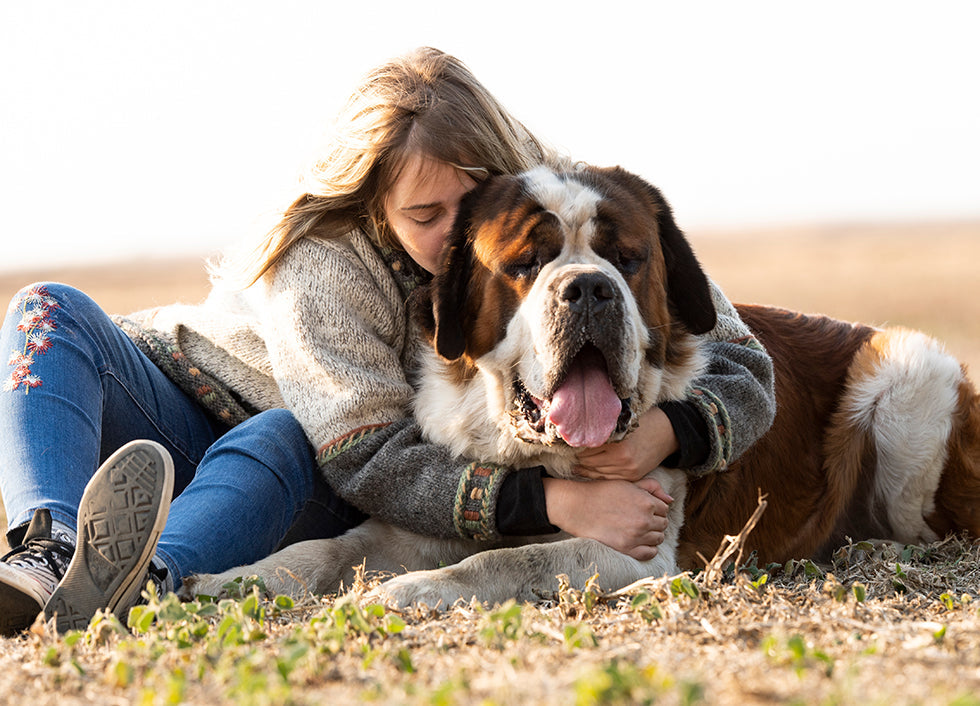
SKIN CANCER IN DOGS: WHAT NATURAL ALTERNATIVES CAN HELP THEM FIGHT IT?
Cancer . No one likes to hear this word, yet our pets are not immune to it.
It's no surprise, then, that this is a concern for many pet owners. Of all the types of cancer, skin tumors are the most common in dogs .
Are you worried that your beloved pet might have skin cancer? Naturally, you're probably worried and have a lot of questions. After all, the very word "tumor" is scary.
- Click to learn more: 👉 Support your dog fighting CANCER with our NATURAL product 🐶
In this article, we'll examine the types of skin cancer in dogs, how to identify them, their causes, and available treatments and alternatives. I hope you find the information you need to be better informed and protect your pet!
Any additional questions you may have about various cancers affecting dogs are addressed in our Complete Guide to Cancer in Dogs .
What types of skin cancer affect dogs?
As in humans, there are many types of skin cancer that can affect dogs. The most common are:
Mast cell tumors in dogs
Mast cell tumors are the most common type of skin cancer in dogs. As the name suggests, they affect mast cells (a type of blood cell found in the immune system). Although they can occur in dogs of any breed, they are most common in Boxers, Boston Terriers, and Golden Retrievers.
Squamous cell carcinoma in dogs
Squamous cell carcinomas are cancerous tumors that affect the squamous cells of the epidermal (top) layer of the skin. Although they can occur in any breed, they are most common in Dalmatians, Standard Poodles, and Basset Hounds.
Malignant melanoma in dogs
Malignant melanomas are cancerous tumors that affect pigmented cells called melanocytes. They are often found on mucous membranes (ocular melanoma), the mouth (oral melanoma), or the nail beds (subungual melanoma). Although they can affect any breed, Miniature and Standard Schnauzers and Scottish Terriers are considered at higher risk.
Benign or clever
If you've found a tumor on your dog, it doesn't necessarily mean cancer! Between 60 and 80 percent of skin tumors in dogs are benign—meaning they're considered non-cancerous and don't spread to other parts of the body.
What does skin cancer look like in dogs?
Although there are different types of skin cancer with varying symptoms, there are certain signs to look out for. Look for anything unusual, such as unexplained bumps in the skin, a firm, raised nodule that resembles a wart, a solitary black or brown lump, a gray or pink lump in the mouth, and bad breath.
The time you regularly spend bathing and grooming your dog gives you the perfect opportunity to check on your pooch—between cuddles, of course! The sooner you detect and treat any cancer found in your dog, the better.
What causes skin cancer in dogs?
Genetics is generally considered the main cause of cancer in dogs. Environmental factors also have their effects.
Squamous cell carcinomas in particular are thought to be caused by prolonged sun exposure, however, connections have also been made with the papilloma virus (oral warts).
Some believe that excessive licking , in response to itching or irritation, may also increase the risk of skin cancer because it causes skin cells to reproduce more frequently, increasing the risk of cancerous mutations.
Unfortunately, older dogs have a higher risk of developing any form of cancer, including skin cancer.
Skin Cancer in Dogs: What Natural Alternatives Are There?
If you've noticed an abnormal growth and your veterinarian has confirmed a diagnosis of skin cancer, you need to start taking action immediately. Of course, you want to do everything in your power to help your pet. At HomeoAnimo ™ , we share your desire to provide an effective and natural remedy to support your pet in their fight against cancer.
PIPTOANIMO is a broad-spectrum mother tincture, designed as a natural support for cancer in dogs. This product is a mushroom: Piptoporus Betulini. Medicinal mushrooms are specially designed to keep the body healthy in cases of cancer and tumors, even for long-term use! It is also an incredible immune system booster , which greatly promotes your dog's ability to fight off disease.
While a cancer diagnosis in your dog can be difficult to hear, hopefully this information will help you be informed and take care of your dog, no matter the circumstances!


















Leave a comment
This site is protected by hCaptcha and the hCaptcha Privacy Policy and Terms of Service apply.